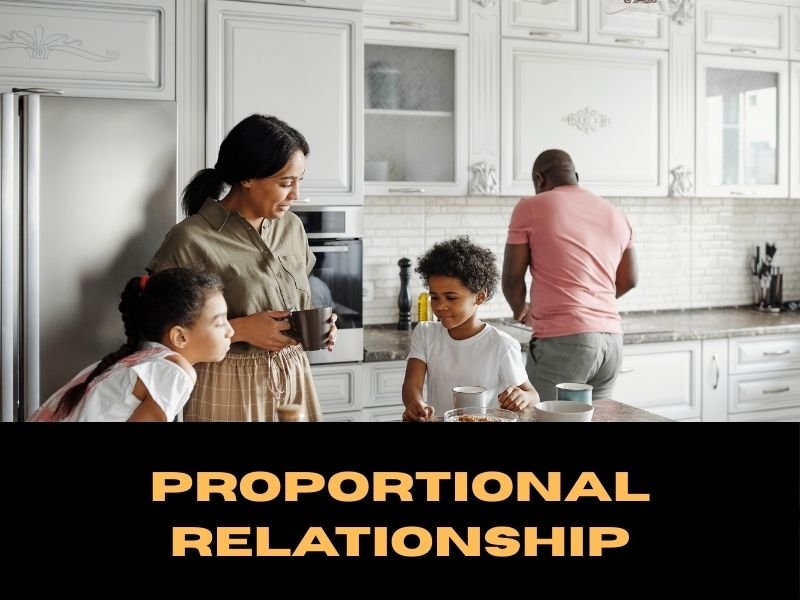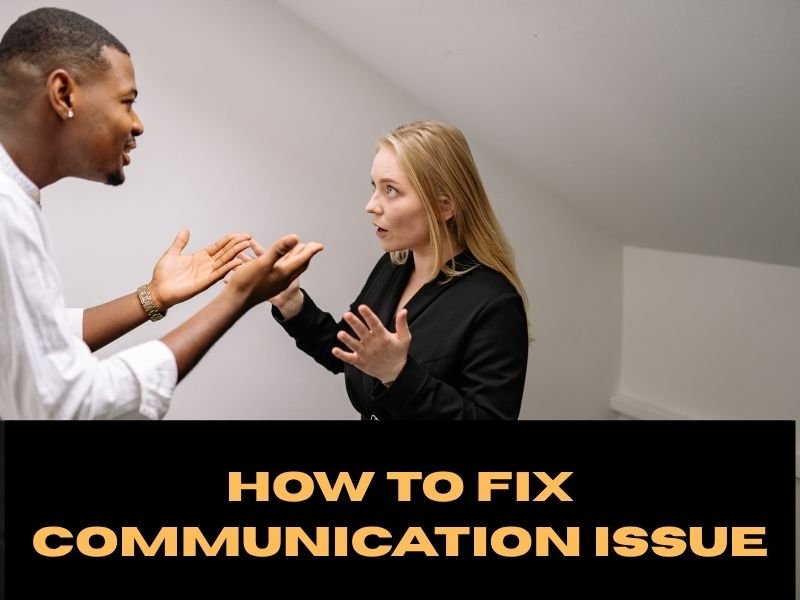How to talk about finances in dating should not just be a practical topic, but also a deeply emotional one. Money is intertwined with values, habits, fears, and dreams. When I have an interaction with young people who are about to be in a relationship or are already dating, one of the important issues that I discuss is how they are going to handle money in their new relationship. Society bombards us with media images of the ideal lifestyle for those who are in a relationship. The media creates for us the style it says we deserve, we should have, and, if not properly trained in finance management, we believe it! When you are just beginning a romantic relationship, everything feels light and exciting. But as the connection deepens, discussions around finances become unavoidable.
The way partners use our finances should depend on their earning power and their lifestyle. How much you both earn, what you spend on, whether you are in debt, how you save for the future, these are questions that hold the power to either unify or divide your relationship. Many couples avoid these topics out of fear that the conversation might ruin the romance. Ironically, silence around finance is what often sabotages relationships down the line. These early talks can uncover red flags, but they can also help you fall deeper in love by showing each other vulnerability and responsibility. This guide offers 11 essential financial conversations to help you and your partner explore not only your relationship with money but your relationship with each other by turning financial talks into foundations of trust and growth.
1. “What’s Your Money Mindset?” — Understanding Each Other’s Financial Background
Before diving into figures, it’s essential to understand the roots: how each of you thinks about money. This conversation isn’t about judgment or interrogation; it’s about learning. How to talk about finances in dating starts by asking: “What did money look like in your home growing up?” or “Do you tend to feel secure or anxious about money?” These simple, open-ended questions will uncover whether or not your partner is a saver, a spender, or somewhere in between, and why. You might discover that they grew up in a household where money was tight and bills were a source of stress, shaping their current financial caution. Or maybe money was abundant but never discussed, leaving them unsure how to budget.
Understanding each other’s financial background creates empathy and builds the emotional safety necessary to discuss more complex topics later. For example, if one partner was raised in a low-income household and tends to hoard savings, while the other grew up in an affluent environment where spending on experiences was encouraged, the two will naturally approach finances very differently. In a counseling setting, therapists often guide couples through exercises that help identify these money scripts and subconscious beliefs about money formed in childhood. Recognizing these patterns allows both individuals to better manage expectations and reduce financial conflict in the relationship.
2. “Do You Have Any Debt?” — Opening Up About Financial Liabilities
Another most delicate but essential part of how to talk about finances in dating is discussing debt. Many people carry some form of financial liability, whether it’s student loans, credit card balances, car payments, or even unpaid medical bills. It’s important to ask your dating partner this very question gently, preferably in a safe and private setting, where your partner doesn’t feel judged or interrogated. Try saying something like, “I think it’s important we both understand where we stand financially. Are you comfortable sharing any debts you are currently managing?” The key is to foster honesty, not anxiety.
Now, consider two professionals who begin dating seriously, one earns $76,000 a year with no debt, and the other makes $65,000 but carries $30,000 in student loans and $5100,000 in credit card debt. Without early disclosure, the financially stable partner may feel blindsided later, especially if they are both planning a shared future that includes co-signing a lease or taking out a joint loan. On the other hand, when debt is discussed upfront, the couple can then plan together, possibly setting up strategies like debt snowballing or budgeting apps to help reduce liabilities. This transparency builds trust and eventually prevents resentment from financial surprises down the line.
3. “How Do You Feel About Debt?” — Gauging Comfort With Financial Obligations
How to talk about finances in dating isn’t complete without discussing debt, which is a subject that often brings discomfort, shame, or hesitation, sexual disinterest, and pressure. Whether it’s student loans, credit card balances, or personal borrowing, debt plays a critical role in someone’s financial landscape. A healthy relationship must include space for partners to speak honestly about what they owe, how they manage it, and how it affects their future decisions. Start the conversation gently by asking, “Do you have any long-term payments you’re working through?” or “How do you feel about taking on debt?”
For example, if one partner has $50,000 in student loans and the other is debt-free and risk-averse, their long-term financial plans, such as buying a house, may face hurdles. The debt-free partner might worry about credit scores or interest payments, while the indebted partner might feel judged or burdened. Having a calm, non-judgmental discussion early on helps both parties make informed decisions and approach financial goals as a team. Even if the topic is difficult, understanding each other’s financial baggage builds empathy and creates a space where trust and planning can thrive.
4. “What Are Your Spending Habits?” — Understanding Day-to-Day Money Behavior
Another way to talk about finances in dating also means getting real about how each one of you spends money daily. One partner might thrive on budgeting apps and coupon codes, while the other believes in treating themselves regularly and lives more spontaneously. Neither approach is “wrong,” but differences in spending behavior can create friction if not openly discussed and addressed. At first, ask your partner casually, “Would you say you are more of a saver or a spender?” This question will then set the tone for deeper discussions around financial compatibility.
For instance, imagine a couple planning a weekend getaway. One insists on booking a five-star hotel with all the perks, while the other would rather go for a modest Airbnb to keep costs low. Without understanding each other’s comfort zones and tendencies around money, these decisions certainly will turn into arguments, conflict, silence, resentment, and sexual disinterest. This is why discussing spending styles early on in the dating phase will help couples know what to expect, and this, in turn, paves the way for compromise, like alternating between luxe and budget trips, or setting a spending cap both are happy with. This mutual understanding will strengthen your emotional connection and help you both manage expectations around finances.
5. “Are You a Saver or a Spender?” — Exploring Financial Personalities
Another way to talk about finances in dating also means understanding your partner’s financial personality. Some people naturally enjoy saving and budgeting, while others find joy in spending and treating themselves or their loved ones. Neither approach is inherently wrong, but when mismatched in a relationship, it will certainly cause tension, miscommunication, and future conflict. A simple question like, “Do you like to track your spending, or are you more of a go-with-the-flow type?” can open a revealing dialogue.
Let’s say one partner follows a strict monthly budget with spreadsheets, while the other prefers to check their balance only when it “feels low.” Without judgment, both can discuss how they manage day-to-day finances and how they might compromise. Formally, this conversation may include sharing past habits, discussing comfort levels with discretionary spending, or even setting spending limits for shared outings. When you know how your partner handles money emotionally and practically, it becomes easier to collaborate on saving, investing, or simply avoiding arguments about that unexpected online shopping spree.
6. “What Are Your Short-Term and Long-Term Financial Goals?” — Aligning Visions for the Future
How to talk about finances in dating also includes aligning your goals, because financial planning isn’t just about bills and budgets; it’s about dreams, values, and the life you are building together. Asking your partner about their short-term and long-term financial goals opens a window into what truly matters to them. Are they saving for a car, planning a solo trip to Asia, buying a home, or hoping to retire early? These questions deepen your connection by showing you’re not just dating for now, but for what lies ahead.
For instance, one partner may prioritize paying off student loans and renting in the city for a few more years, while the other might want to save aggressively for a down payment and move to the suburbs. Discussing these visions helps both partners assess compatibility and spot any potential friction early. In formal financial planning, this conversation would include time-bound goals, financial milestones like buying property or starting a business, and the resources needed to reach them. When couples support each other’s aspirations, they move forward as a team, not just romantically, but also financially.
7. “Should We Combine Our Finances or Keep Them Separate?” — Exploring Money Management Styles
How to talk about finances in dating will naturally lead to the question of money management: should you combine your income and expenses, or maintain financial independence? This conversation becomes especially critical as the relationship progresses and joint responsibilities emerge, such as travel planning, cohabitation, or shared debt. It’s not about right or wrong, but it’s about finding a model that respects both partners’ comfort levels, financial histories, and personal values.
For example, a couple may decide to maintain separate bank accounts but open a shared account for joint expenses like rent, groceries, or weekend getaways. Another pair might opt for full financial integration, pooling their salaries and setting shared savings goals. A more formal approach involves creating a joint financial agreement, documenting who pays what, when, and how, to avoid confusion or resentment. Discussing these systems ensures transparency and trust, especially when one partner earns significantly more than the other. The key is open dialogue and mutual respect, not strict formulas.
8. “What Are Your Short-Term and Long-Term Financial Goals?” — Aligning Visions for the Future
How to talk about finances in dating isn’t just about what’s happening now, but also about where you are both headed. Discussing short-term and long-term financial goals will help you two understand each other’s vision for the future and whether they are truly compatible. Do you dream of owning a home, starting a business, retiring early, or traveling the world? Your partner might have entirely different priorities, like supporting family, paying off student loans, or investing aggressively.
Let’s say one partner is focused on paying off credit card debt in the next year while the other is saving for a trip to Europe. That mismatch could create tension unless there’s a conversation that acknowledges both goals and finds a compromise. More formally, some couples create a joint financial roadmap that lists each partner’s top 3 priorities over the next 1, 5, and 10 years. This exercise can open eyes, build empathy, and lay the foundation for real collaboration rather than surprise sacrifices.
9. “How Should We Split Bills and Savings?” — Establishing Fairness and Flexibility
How to talk about finances in dating must include a clear and honest conversation about dividing day-to-day expenses and savings contributions. As dating progresses, especially when couples move in together, confusion over who pays for what can lead to frustration or resentment if not addressed early. Some couples prefer a 50/50 split, while others adopt a proportional approach based on income. The key is mutual agreement and adaptability.
For example, a couple earning very different salaries may decide the higher earner contributes 60% toward joint expenses and the other 40%, allowing both to save and live comfortably without resentment. Formalizing these terms in a shared spreadsheet or budgeting app can prevent misunderstandings and keep both parties accountable. Even if you are not combining finances yet, setting a clear structure shows maturity and ensures financial compatibility as your relationship deepens.
10. “What Are Our Short-Term and Long-Term Financial Goals?” — Aligning Futures Early
How to talk about finances in dating should include aligning your short-term and long-term money goals early in the relationship. This conversation is more than budgeting; it’s about seeing whether your future visions are compatible. Short-term goals could be saving for a vacation, clearing debt, or buying a car, while long-term goals might include buying a home, starting a family, or planning for retirement. Knowing if you are moving in the same direction financially can make or break the future of your relationship.
An example of this would be a couple who discuss their five-year plan: Partner A wants to buy a house, while Partner B is focused on paying off student loans. By having this candid conversation early, they can map out a plan to support both goals, like saving for a house down payment while allocating extra income toward loan repayment. This builds mutual respect, support, and a roadmap for their shared future.
11. “What If One of Us Faces Financial Hardship?” — Preparing for Uncertainty Together
How to talk about finances in dating should not just be about current income and spending habits, but it should be about discussing the unpredictable nature of life. Financial hardship can come in many forms: Job loss, a medical emergency, or an unexpected family obligation. These conversations may feel uncomfortable, but they’re critical to building a partnership that’s emotionally and financially resilient. Addressing “what if” scenarios early helps couples create a safety net of mutual understanding, rather than panic in the face of crisis.
Take Jasmine and Marcus, for instance. Just six months into their relationship, Marcus opened up about his fears of financial instability after seeing his father lose a job and spiral into debt. Jasmine shared her own experience navigating a medical crisis with no insurance in college. Their vulnerability created space for a deeper dialogue. Together, they agreed to prioritize building individual emergency savings accounts while still planning shared experiences modestly. When Jasmine’s freelance contracts dried up unexpectedly months later, Marcus didn’t criticize or panic because they both had a plan and the emotional tools to support each other without resentment. That trust, born from early candid talks, became the foundation of their future goals.
Conclusion
Learning how to talk about finances in dating is more than just crunching numbers; it’s about building a future rooted in honesty, clarity, and shared values. Money may not be the most romantic topic, but avoiding it can quietly erode even the strongest emotional bonds. The couples who thrive are the ones who aren’t afraid to tackle these conversations early, openly, and often. When you speak about budgets, goals, debts, and dreams with empathy and maturity, you are not just talking about money, but you are saying, “I’m building a life with you, not just a moment.”
In every phase of a relationship, financial transparency is an opportunity to deepen emotional and physical intimacy. From first dates to shared homes and beyond, your willingness to ask tough questions and listen with care lays the groundwork for a partnership built to weather life’s financial storms and celebrate its rewards. As you apply these 11 candid conversations, remember: the goal isn’t perfection, it’s progress, together.







